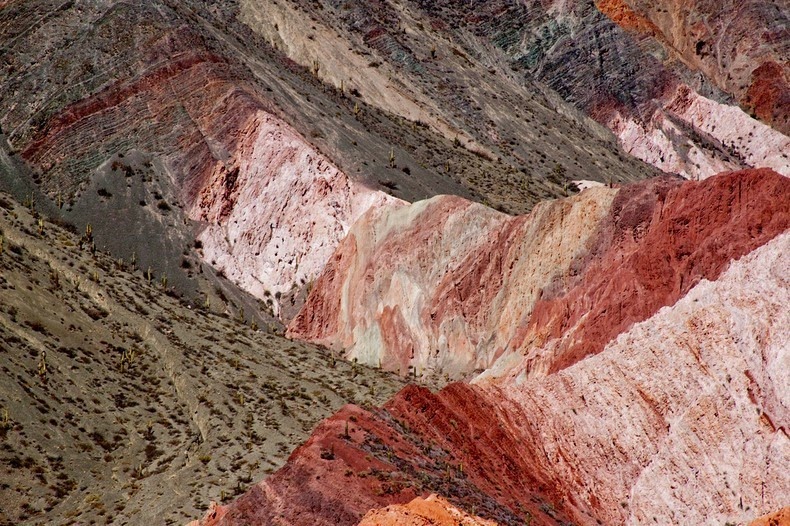Cerro de los Siete Colores or “The Hill of Seven Colors” is one of the hills bordering the tiny village of Purmamarca, in Jujuy Province, in north-western Argentina. Sprung up around seventy-five million years ago, the hill was formed by a complex geological process that involved deposition of sea, lake and river movements and subsequent elevation of the land due to the movement of the tectonic plates. The hill is called such due to the various pigments acquired by the minerals that make up the sedimentary layers. It is said that you can see seven colors in the hill, but most people can pick out only four. The colors are most clearly visible in the morning. The hill is best seen from the main road about 400 meters before entering the village.

Purmamarca, the village itself, is just another in Jujuy, but thanks to its wonderful backdrop – the Cerro de los Siete Colores, it has developed into a popular tourist village. The village’s origin can be traced back to the 16th century when it was part of the Inca Road. The Church of Saint Rose at the center of town, and the square in front of the church where each morning holds a colorful handcrafts market, are its major attraction. In the corner, stands the old Cabildo, the smallest in the country. Some blocks away, design handcrafts stores and gourmet restaurants give a touch of exclusivity to the landscape, together with picturesque hotels of refined architecture, high quality and remarkable services.


















0 komentar:
Post a Comment